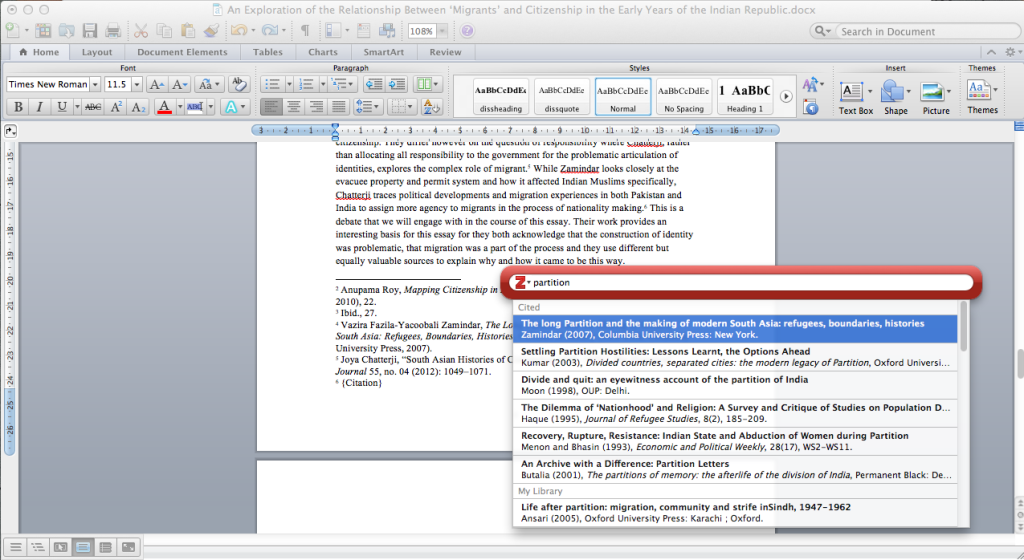
- #Word zotero plugin how to#
- #Word zotero plugin install#
- #Word zotero plugin update#
- #Word zotero plugin manual#
- #Word zotero plugin code#
This is to allow easier collaboration outside of Logseq and easy style adjustments once closer to submission ready.
#Word zotero plugin manual#
I could not get the Citation Manager Plugin to work and I wanted live Zotero citations in a Word document without manual replacement of every citation instance.

(Makhulu and Smith 2022a), (Makhulu and Smith 2022b) which don’t uniquely resolve back to an item.Īlt+F9 in Word toggles the Field codes, they contain information that is currently not available on the Logseq side (citation ID), but in principle it should be eventually possible to directly export from Logseq and turn all links that link to a citation page into a Field. The advantage is that otherwise one could mix up citations in case there similar citations by the same authors.

Maybe someone could write a VB plugin that searches for such strings and then calls the Zotero plugin to replace them by fields I think a better way than to use Zettlr to mangle the citations to Chicago style “((Makhulu and Smith 2022, p, 178)” would be to just leave the BibTeX keys in the document with something easily recognizable (start all of them with an Then open the document in Word, and manually replace all keys with proper Fields using the Zotero plugin (I just tried, search also works for keys).
#Word zotero plugin how to#
I’m not yet sure how to accomplish this?ĭo you have an idea how to deal with images? For that you would probably want a Word document that had “live” Zotero markers in it so that someone else with a shared library could continue to edit the document. This all works surprisingly well already, but note that while this workflow results in a well formatted word document with proper in-text citations and a bibliography, it may not be ideal for collaboration. Note: Someone on the Zettlr Discord gave me a fix for removing URLs and DOI from the bibliography in the Chicago (author-date) style. You can remove bullets and brackets using the “copy as” contextual bullet menu. I haven’t tried exporting a whole page, or section of a page yet, but I don’t see any particular difficulty. Right now, I am just manually copy-pasting the block to a document in Zettlr.This means you don’t really need to do any additional work. It will automatically recognize and convert the citations because it is using the exact same citekeys as the Citation Manager Plugin.Copy-paste the resulting paragraph into Zettlr and export to Word!.When writing, edit the citation as needed, for instance adding a page number would look like this:, separate two citations with a semicolon.Point Zettlr to the CSL JSON file in the “citations” tab of the preferences.This one should be a Better CSL JSON file. Set up another export file from Better BibLaTeX (with automatic updating).You can do this by configuring BetterBibTeX to use the Pandoc format for “quick copy” actions.

#Word zotero plugin code#
Another option is to simply switch to Zotero and copy the code from there.
#Word zotero plugin install#
#Word zotero plugin update#
That being said, this is a work in progress and I will update this post as the workflow changes.

But this thread is for people like me who are (a) impatient, and (b) lazy, and want to have the best integration possible with the least amount of effort. Things are changing fast with a lot of development happening in efforts to develop a Comprehensive Zotero Plugin.


 0 kommentar(er)
0 kommentar(er)
